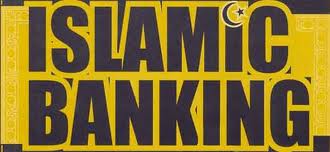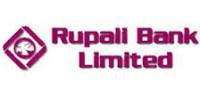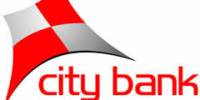What is an Islamic Bank?
An Islamic Bank is a financial institution which operates with the objective to implement and materialize the economic and financial principles of Islam in the arena of Banking. Islamic Bank is a “company which carries on Islamic Banking business. Islamic Banking business means banking business whose aims and operations do not involve any element which is not approved by the religion Islam”. That means Islamic Bank developed under Islamic framework, performs most standard banking service and investment activities conforming the principles of Islamic Shari’ah.
“Islamic bank is a financial institution whose statutes, rules and procedures expressly state its commitment to the principles of Islamic Shariah and to the banning of the receipt and payment of interest on any of its operations.”
Organization of Islamic Conference (OIC)
“Islamic Bank is essentially a normative concept and could be defined as conduct of banking in consonance with the ethos of the value system of Islam.”
Dr. Ziauddin Ahmed
Although Islamic Bank is a financial institution, its operations and activities shows that Islamic Bank as a Business firm with Halal transaction within the boundary of Islami Shari’ah. The main objective is not only to earn profit but also to make welfare oriented, interest free, and exploitation free economy of a country.
Rationale of Islamic Banking
In any economy, funds need to be transferred from savers to borrowers because people who save are frequently not the same people who have the ability to invest the funds in profitable investment opportunities as they are not entrepreneurs. This function is performed through the process of financial intermediation in the financial markets. The most important operators in the financial markets are commercial banks. Financial intermediation enhances the efficiency of the saving/investment process by eliminating the mismatches inherent in the needs of surplus and deficit units of an economy.
The role and functions of commercial banks are indeed highly useful and socially desirable, but unfortunately, interest plays a central role in each of these functions. Islamic financial intermediation endeavors to replace interest by establishing partnerships between owners of capital and entrepreneurs or borrowers on the basis of profit sharing as a basic form of co-operation between capital provider and borrower. The functions that the banks perform are important whether the economy concerned is secular or Islamic. People need banking services.
Evolution of the Concept of Islamic Banking
The idea of Islamic banking took as many as thirty years for its conceptual consolidation and only by the early seventies did it take the shape of the present day comprehensive model. The system is based on the Islamic legal concepts of shirkah (partnership) and mudaraba (profit sharing). Many Muslim economists contributed to the development of thinking on Islamic banking, the notables among them are Nejatullah Siddiqi, Baquir al Sadar, Abdullah al Araby, Sami Hassan Hamoud and Ahmed al Naggar.
Siddiqi primarily conceived an Islamic bank as a financial intermediary mobilizing savings from the public on the basis of mudarabah and advancing capital to entrepreneurs on the same basis. Profit accruing to entrepreneurs on the capital advanced by the bank are shared by the bank according to a mutually agreed upon percentage. The bank also provides a number of familiar services on a fee or a commission basis. The bank’s own capital also goes into the business of offering banking services and advancing capital on a profit sharing basis. After accounting for administrative costs, the net revenue on these business activities constitutes the bank’s profits, which are distributed to the owners of capital, both to the individuals that deposited their savings on the basis of mudarabah and the bank for its capital investment.
Salient Features of Islamic Banks
- Islamic Banking activities are regulated according to Islamic Shari’ah.
- Islamic Bank is directed by Shariah board, which consists of many brilliant and famous intellectuals, economists, banker and lawyers.
- All economic activities are free from interest.
- It tries to coordinate economic and social development.
- The shareholders and the depositors are the only source of funds for Islamic banks. They do not use borrowing as a source of finance.
Basic Objectives of Islamic Banks
The basic objectives of Islamic bank can be pointed out as follows:
- To conduct interest free banking systems according to Islamic Shari’ah.
- To make investment through different modes permitted under Islamic Shari’ah.
- To offer contemporary financial services in conformity with Islamic Shari’ah;
- To contribute towards economic development and prosperity within the principles of Islamic justice;
- Optimum allocation of scarce financial resources.
- To help ensure just and equitable distribution of income.
Establishment of Islamic Banks worldwide
The concept of Islamic Banking is several decades old. The first attempt to establish an Islamic financial institution took place in Pakistan in the late 1950s with the establishment of a local Islamic Bank in a rural area (Wilson 1983). Some pious landlords who deposited funds at no interest, and then loaned to small landowners for agricultural development initiated the experiment. The borrower did not pay interest on the credit advanced, but a small charge was levied to cover the Bank’s operational expenses. The charge was far lower than the rate of interest.
The second pioneer experiment of putting principles of Islamic Banking and finance into practice was conducted in Egypt from 1963 to 1967 through the establishment of the Mit Ghamar Savings Bank in a rural area of the Nile Delta. The experiment combined the idea of German savings Bank with the principles of rural Banking within the general framework of Islamic values (Ahmed 1992). The Bank’s operation was based on the same Islamic principle i.e. no-interest to the depositors or from the borrower. This was the first Islamic Bank in an urban setting based in Cairo. The Bank is a public authority with an autonomous status (Ahmed 1992). The principles of operation of the Naser Social Bank are very similar to those of the Mit Ghamr Savings Bank. However, the latter offers a full range of normal Banking services and a wide range of investment activities through equity participation.
Later the Dubai Islamic Bank was established in 1975. Since then, a number Islamic Bank and financial institutions have been established of different parts of the world and have been functioning successfully.
A significant development in Islamic Banking has been the granting of an Islamic Bank license in Saudi Arabia to the fifty-year old “Al-Rajhi Company”, a firm noted for its currency, exchange and commercial activities, whose assets exceed $ 5 billion. The firm began its operation in 1985 under the name of “Al-Rajhi Banking Investment Corporation”
Islamic Banking in Bangladesh
In August 1974, Bangladesh signed in the Charter of Islamic Development Bank and committed itself to reform its economic and financial system according to Islamic Shariah.
Late President Ziaur Rahman, In January 1981, while addressing the 3rd Islamic Summit Conference held at Makkah and Taif suggested, “The Islamic countries should develop a separate Banking system of their own in order to facilitate their trade and commerce.” This statement indicated favorable attitude of the Government of the People’s Republic of Bangladesh towards establishing Islamic Banks and financial institutions in the country.
Earlier in November 1980, Bangladesh Bank sent a representative to study the working of several Islamic Banks abroad.
In November 1982, a delegation of IDB came to Bangladesh and showed their keen interest in establishing a joint venture Islamic Bank in the private sector. Two professional bodies Islamic Economics Research Bureau (ERB) and Bangladesh Islamic Bankers’ Association (BIBA) made significant contributions towards introduction of Islamic Banking in the country. They came forward to provide training on Islamic Banking to top Bankers and economists to fill-up the vacuum of leadership for the future Islamic Banks in Bangladesh. They also held seminars, symposia and workshops on Islamic economics and Banking throughout the country to mobilize public opinion in favor of Islamic Banking.
General Banking, Investment and Foreign Exchange Study of Previous report
A study done by Mr.Amirul Islam (2010), titled “Genaral Banking & Investment Of Islamic Banks in Bangladesh Ltd..”. His major findings are as follows:
1. Islamic banking is a new phenomenon in our country during last two decades. So majority of our people have no proper knowledge about the activities of Islamic banking as well as its investment mechanism hamper large scope of investment of IBBL.
2.Most of the people in our country have a bad impression of IBBL’s operations regarding indirect generation of interest which meaning no difference between they are not so interested to make investment with IBBL.
- Because which is committed to avoid interest, can’t invest the permissible part of its statutory liquidity reserve and short term liquidity surplus in those securities.
- IBBL which is committed to avoid interest, can’t invest the permissible part of its statutory liquidity surplus in those securities.
Definition of Exporter
The importers and exports trade of the country is regulated by the Imports Exports Control Act 1950. No person /firm is allowed to export any thing from Bangladesh unless he is registered with CCI and E under the registration order (Importer and Exporter) 1952. To become an exporter an ERC (export Registration Certificate) must be obtained from the office of CCI & E.
Procedure for Obtaining Export Registration Certificate (ERC):
For obtaining Export Registration Certificate (ERC), intending Bangladesh Exporters are required to apply to the CCI & E authority in the prescribed from along with the following documents:
a) Nationality Certificate.
b) Copy of valid Trade License.
c) Income Tax Certificate.
d) Bank Certificate.
e) Copy of rent receipt of the business firm.
f) Registered Partnership Deed in case of partnership concerns.
g) Memorandum of Articles & Association and Incorporation certificate in
Case of Limited Company.
Different Types if Export
A. Export under L/C
Exporters are allowed to export the commodity under irrevocable letter of credit. Under this type of export, exporter will ship the goods as pr terms of the credit and will get payment as per arrangement of the credit.
b. Consignment basis export:
Exports are allowed against firm contract. As per contract, importer will ship the goods and the buyer will make payment after selling the consignment.
c. Export against advancement payment:
Sometimes exporter receives payment in advance. In that case Authorized Dealer should obtain a declaration from the exporter on the “Advance receipt voucher” certifying the purpose of the remittance. Then the exporter will export the goods against the advance payment.
General Rules for Export
There are some rules, which are mandatory for export of any goods form Bangladesh. The rules are as under:
(1) No Person can export any goods from Bangladesh, unless he is duly registered as an exporter with the CCI & E.
(2) All export must be declared on the EXP form, which is consisting of 4 copies.
(3) Export mush is against any of the following:
a) Export L/C.
b) Firm Contract.
c) Advance Payment.
(4) Transport documents related to land route or sea and any other Author8ized Dealer. The Airway Bill and any other documents of title to car4go may be drawn to the order of a Bank in the country of import. However in case of advance payment, transport document may be drawn to the order of Foreign Importer Bank endorsement of transport documents is prohibited. Directions under Sl. No. shall not apply in the following cases:
a) Export of Trade sample.
b) Personal Effects.
c) Goods shipped under the order of Govt.
d) Export of fresh fish, vegetable and fruits.
e) Gift package for less than Tk. 50/-.
SWOT Analysis
SWOT Analysis is an important tool for evaluating the company’s Strengths, Weaknesses, Opportunities and Threats. It helps the organization to identify how to evaluate its performance and understand the macro environment, which in turn would help the organization to navigate in the turbulent ocean of competition.
Strength and weakness are internal attributes. Which can addressed by analyzing the organization’s values, norms, operational procedures, working environment, reward and punishment systems, quality and experience of employees, financial soundness, quality and experience of management, reputation and loyalty of customers and so on.
Opportunity and threat are external attributes. These arise from the environment in which the organization operates. External environment consists of the legal and regulatory requirements, competitive situation and position in the industry life cycle, growth of the industry, strength and weaknesses of the competitors and other macroeconomic factors.
Overall, the mix is exciting. We live in an age of growth, change, and business revolution. The globalization offers us opportunities and threats. We need to make our dealing with it one of our biggest strength, to minimize our weakness. The SOWT analysis of IBBL is presented below:
Strengths
Strengths are the internal resources and capabilities that allow an organization to achieve better performance than its competitors. The salient strengths of IBBL are:
- Adequate internal fund: IBBL maintains adequate retained earnings and general reserve. So it does not need to borrow money from Bangladesh Bank or any other banks.
- More funds for Investment: For adequate financial ability, more paid up capital, and financial solvency, IBBL can provide more investments to clients relative to competitors.
- Honest and Reliable Employees: The employees of IBBL are reputed for their honesty and reliability. They always devote themselves to be efficient and provide better customer service.
- Experience management team: the management team is skilled and experienced and it always followed its vast (27years) experience since its establishment.
- Research division: To keep pace with the competitors and introduce innovative and developed products IBBL has a research division.
Weaknesses
Weaknesses are the internal problems and lacking that restricts an organization to achieve performance as its competitors do. The salient Weaknesses of IBBL are:
- Centralized decision making: In the organization, decision-making is more or less centralized at the top of the organization. A group of senior managers make all significant operating decisions and then communicates to the managers at lower level. This trend is common to almost all banks which make managers reluctant to change and innovation.
- Lack of diversification: the investment condition of IBBL is not diversified in terms of sector as well as customer. Sometimes proper procedures like collateral and documentation are not complied so there is high exposure to risk.
- Lack of skilled manpower: Islamic Banking is a new subject to general people and adequate knowledge and skill about Islamic Banking is not easily available. in some instances employees also do not possess proper knowledge in many aspects.
- Poor salary structure: IBBL poor salary structure relative to its competitors. As a result employees do not have tendency to provide highest effort and thinks to switch to competitor banks.
Opportunities
Opportunities are the external possibilities that may allow an organization to achieve better performance than its competitors in the future. The salient Opportunities of IBBL are:
- Emergence of E-banking: Emergence of E-banking has opened more scope for IBBL. It will help the customers know their account information from their home personal Computer.
- Increase distributional network: It has financial capabilities to increase its distributional network in uncovered area or network.
- Increasing interest for Islamic banking: Most of our people are pious; they want to deposit their fund in interest free organization. For this reason, IBBL have enough opportunity for deposit mobilization and also for strong base of equity IBBL can disburse large scale of Investment, which can help to achieve more profit and poverty elevation.
- Strong customer loyalty: IBBL enjoys strong customer loyalty. It can further increase its brand loyalty through increasing awareness of Islamic Banking.
Threats
Threats are the external possibilities that may restrict an organization to achieve better performance as its competitors may do in the future. The salient Threats of IBBL are:
- Regulatory environment: The rules and regulations about financial system in Bangladesh are not favorable for IBBL. Therefore, they have to face various problems to operate their activities according to Islamic Shari’ah.
- Inappropriate Islamic banking by competitors: Inappropriate Islamic banking by competitors causes people to have misconceptions about IBBL. This may have significant impact on its operations.
- Exchange rate risk: Frequent taka devaluation and foreign exchange rate fluctuation is causing excessive Exchange rate risk.
- Increasing competitors: Many new banks are coming in the scenario with new services. Many Islamic Banks are coming forward to operate their business and some conventional Banks are opening their Islamic Banking Branches. Therefore, there is increased competition in the market for public deposits.
Findings
Bangladesh is not a full-fledged Islamic country; not all activities are operating according to the Shari’ah of Islam. However, the IBBL is trying to operate their activities conform to Islamic Shari’ah as much as possible. From the long and rigorous study and close observation, we got some findings about IBBL that are presented below:
- Islamic Banking is a new phenomenon in our country during last two decades. Therefore, majority of our people do not have proper knowledge about the harmful impact of interest and the activities of IBBL as well as its investment mechanisms, which hamper large scope of investment of IBBL.
- Most of the people in our country have a bad misconception about IBBL’s operations. According to them IBBL generates interest calling it profit which is nothing different from interest. And so there is no difference between investment of IBBL and loan / Credit / advance of conventional banks. For this reason, they are not too much interested to make investment with IBBL.
- Because of improper & insufficient application of Islamic Banking in our country, by the insolvent banks to avoid bankruptcy or the conventional banks to earn more profit through introducing total Islamic banking or Islamic banking branch, the operations of IBBL cannot be run smoothly and the misconceptions are strengthened.
- IBBL is committed to avoid interest so cannot invest the permissible part of its statutory liquidity Reserve and short Term liquidity surplus in those securities. As a result profitability is affected. Islamic money market instruments are required to be introduced to improve profitability.
- This Bank cannot invest in all economic sectors, goods, and services which are prohibited by the law of Islam so are deceived of many profitable investment opportunities
Conclusion
Bangladesh is a developing country. Without developing banking sector, this country’s business sector is not possible to progress rapidly. In such condition, IBBL is trying to develop banking sector through ensuring welfare oriented servicing to the people. Islami Banking is not possible to establish without Tauhid, Reshalat and trust of Akhirat.
References
- Brealy, Richard and Stewart Myers, (2010), ,”Principles of Corporate Finance, 8th Edition, McGraw-Hill, New York, USA
- Chapra,M,Umar (2009) “Review of Islami Economics” 5th Edition, Pakistan Economic Trends publish by Bangladesh Bank.
- 3. James C. Van Horne and John M. Wachwicz, jr,(2009), “Fundamental of Financial Management”13th Edition,New Delhi,India
- Marcia Millon Cornett,Anthony Saunders,(2009),”Financial Markets and Institions,Second Edition, ,New Delhi,India
- Robbins P.Stephen,”Organizationl behavior”-11th Edition
















